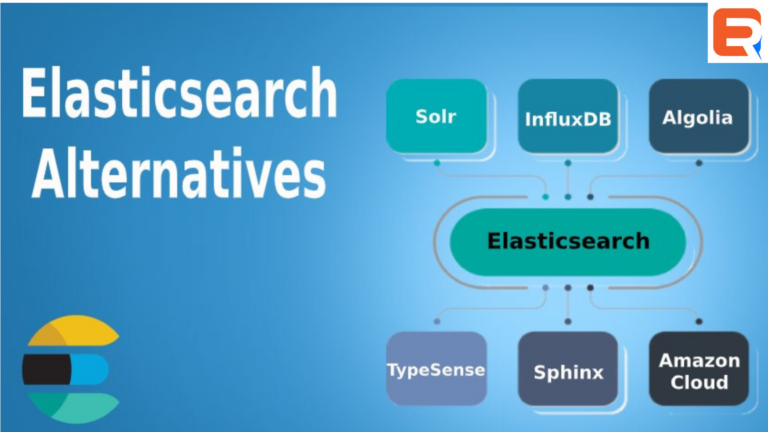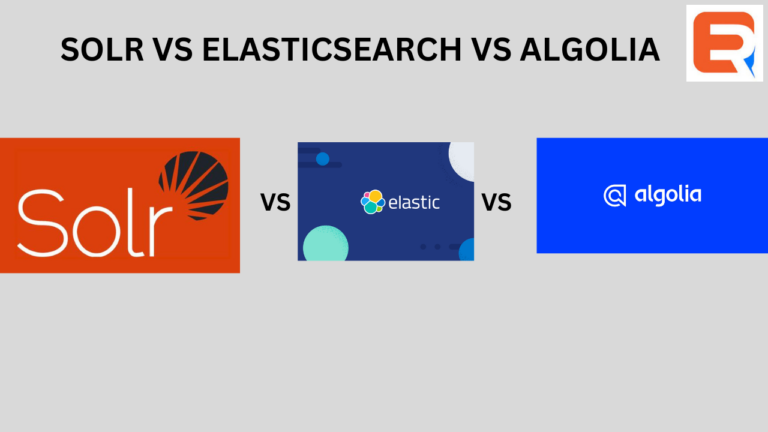Elasticsearch is a popular open-source search and analytics engine known for its scalability, real-time capabilities, and robust search functionalities. However, there are various scenarios where businesses may seek alternatives to Elasticsearch to meet their specific requirements. This article aims to provide an overview of some notable Elasticsearch alternatives, highlighting their key features, use cases, and benefits.
1. Apache Solr:
Apache Solr is a widely used, open-source search platform built on Apache Lucene. It offers powerful search capabilities, advanced text analysis, and faceted search options. Solr provides flexibility in handling structured and unstructured data, making it suitable for a wide range of use cases, including e-commerce, content management systems, and data exploration. Solr’s extensive community support, rich documentation, and easy integration with other Apache projects make it a popular choice among developers.
2. Algolia:
Algolia is a cloud-based search and discovery platform designed for delivering fast and relevant search results. It offers a user-friendly interface, extensive search customization options, and support for real-time indexing and filtering. Algolia’s focus on delivering lightning-fast search experiences and its intuitive dashboard make it a preferred choice for businesses in the e-commerce, media, and SaaS industries. Additionally, Algolia provides comprehensive analytics and A/B testing features to optimize search performance continually.
3. Amazon CloudSearch:
Amazon CloudSearch is a fully managed search service offered by Amazon Web Services (AWS). It provides scalable and reliable search functionality without the need for infrastructure management. CloudSearch offers features such as full-text search, faceted search, customizable relevance ranking, and multilingual support. With seamless integration with other AWS services, robust security features, and automatic scaling capabilities, CloudSearch is an ideal choice for businesses already leveraging the AWS ecosystem.
4. MeiliSearch:
MeiliSearch is an open-source, instant search engine that offers fast and relevant search results. It is easy to set up and use, with support for multiple programming languages and comprehensive documentation. MeiliSearch is suitable for small to medium-sized projects, offering features like typo tolerance, faceting, filtering, and customizable ranking. Its simplicity and developer-friendly approach make it an attractive option for applications that require a lightweight search solution.
5. Apache Cassandra:
Apache Cassandra is a distributed NoSQL database known for its scalability, fault tolerance, and high-performance capabilities. While not primarily a search engine, Cassandra’s built-in search functionality, known as “Cassandra Secondary Indexes,” allows for indexing and querying data based on specific criteria. This makes Cassandra a viable option for applications that require search capabilities alongside distributed storage and high availability.
Conclusion:
While Elasticsearch is a powerful and versatile search engine, there are various Elasticsearch alternatives available to cater to specific use cases and business requirements. Whether you’re seeking a cloud-based search platform like Algolia or Amazon CloudSearch, an open-source solution like Apache Solr or MeiliSearch, or a combination of distributed storage and search functionality like Apache Cassandra, these alternatives offer unique features and benefits. Evaluating the specific needs of your project, scalability requirements, ease of use, community support, and integration capabilities will help you determine the most suitable Elasticsearch alternative for your data search and analysis needs.
FAQ:
Q: What is Elasticsearch?
A: Elasticsearch is a distributed, open-source search and analytics engine. It is designed to handle large amounts of data and provides fast and scalable search capabilities.
Q: Why would someone consider Elasticsearch alternatives?
A: There are several reasons why someone might explore Elasticsearch alternatives, including:
1. Cost: Elasticsearch can be resource-intensive, requiring dedicated hardware and infrastructure, which can be costly for some organizations.
2. Complexity: Setting up and managing Elasticsearch clusters can be complex and require specialized knowledge.
3. Specific requirements: Some organizations may have specific use cases or requirements that are better served by alternative solutions.
Q: Can Elasticsearch alternatives be integrated with existing systems?
A: Yes, many Elasticsearch alternatives offer integrations and APIs that allow for seamless integration with existing systems, applications, and frameworks.
Q: Is it possible to migrate from Elasticsearch to an alternative solution?
A: Yes, it is possible to migrate from Elasticsearch to an alternative solution, although the process can vary depending on the specific solution chosen. It typically involves data extraction, transformation, and loading (ETL) processes to transfer data from Elasticsearch to the new system.
Q: Can Elasticsearch and its alternatives be used together?
A: In some cases, Elasticsearch and its alternatives can be used together in a complementary manner. For example, organizations may choose to use Elasticsearch for specific use cases while leveraging alternative solutions for other search or analytics requirements.




